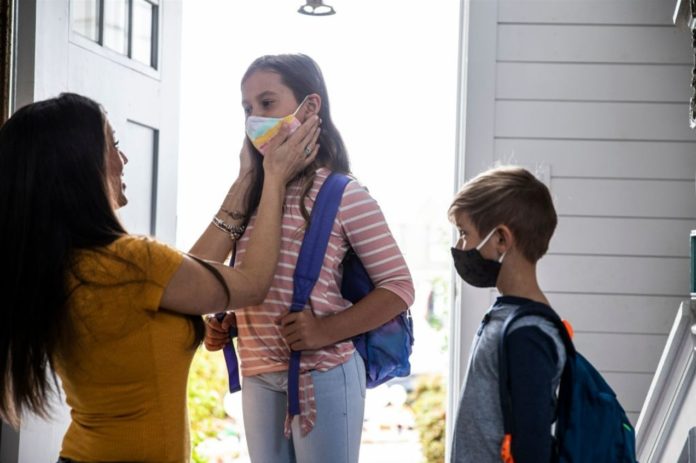Myocarditis is a rare but dangerous heart muscle inflammation. It can weaken the heart and interfere with the electrical mechanism that keeps it pumping. Virus infection and/or inflammation are the most common causes.
According to new research published today in the journal Circulation, most young individuals under the age of 21 who suffered suspected COVID-19 vaccine-induced heart muscle inflammation known as myocarditis had mild symptoms that recovered quickly.
Myocarditis is an uncommon but deadly illness in which the heart muscle becomes inflamed. It has the potential to weaken the heart and interfere with the electrical mechanism that maintains the heart pumping consistently. It is most typically the result of a virus-caused infection and/or inflammation.
The Advisory Committee on Immunization Practices of the Centers for Disease Control and Prevention (CDC) in the United States reported a possible association between mRNA COVID-19 immunization and myocarditis in June of this year, particularly in those under the age of 39. However, research continues to show that COVID-19 vaccine-related myocarditis is infrequent and mainly mild.
Data continue to show that the benefits of COVID-19 vaccine, which is 91 percent effective in preventing complications of severe COVID-19 infection, such as hospitalization and death, substantially outweigh the relatively rare risks of side events, such as myocarditis.
Adolescent and young adult males have the highest rates of myocarditis after COVID-19 immunization. The previous study has linked this uncommon side effect to certain other vaccines, most notably the smallpox vaccine.
While current data on symptoms, case severity, and short-term outcomes are lacking, the researchers of the current study set out to investigate a large sample of probable cases of this heart problem in teens and adults under the age of 21 in North America related to the COVID-19 vaccine.
Researchers analyzed the medical records of individuals younger than 21 who had symptoms, lab results, or imaging findings indicating myocarditis within one month of having a COVID-19 immunization prior to July 4, 2021, using data from 26 pediatric medical institutions across the United States and Canada. Using CDC standards, cases of suspected vaccine-associated myocarditis were classified as “probable” or “confirmed.”
Researchers identified and evaluated the following characteristics and behaviors in 139 adolescents and young adults ranging in age from 12 to 20 years:
- Most patients were white (66.2%), nine out of 10 (90.6%) were male and median age was 15.8 years.
- Nearly every case (97.8%) followed an mRNA vaccine, and 91.4% occurred after the second vaccine dose.
- Onset of symptoms occurred at a median of 2 days following vaccine administration.
- Chest pain was the most common symptom (99,3%); fever and shortness of breath each occurred in 30.9% and 27.3% of patients, respectively.
- About one in five patients (18.7%) was admitted to intensive care, but there were no deaths. Most patients were hospitalized for two or three days.
- More than three-fourths (77.3%) of patients who received a cardiac MRI showed evidence of inflammation of or injury to the heart muscle.
- Nearly 18.7% had at least mildly decreased left ventricular function (squeeze of the heart) at presentation, but heart function had returned to normal in all who returned for follow-up.
“These data suggest that most cases of suspected COVID-19 vaccine-related myocarditis in people younger than 21 are mild and resolve quickly,” says the study’s first author and professor Dongngan T. Truong.
“We were very happy to see that type of recovery. However, we are awaiting further studies to better understand the long-term outcomes of patients who have had COVID-19 vaccination-related myocarditis. We also need to study the risk factors and mechanisms for this rare complication.”
The researchers recommend that future studies follow patients who have developed vaccine-associated myocarditis for a longer period of time, as this study investigated just the early course of patients and does not include follow-up data. Additionally, there are certain critical constraints. The trial design precluded scientists from estimating the percentage of those who received the vaccine and suffered this uncommon consequence, as well as doing a risk/benefit analysis. The patients in this study were also evaluated at academic medical centers and may have been more gravely unwell than other community-based cases.
“It is important for health care professionals and the public to have information about early signs, symptoms and the time course of recovery of myocarditis, particularly as these vaccines become more widely available to children,” adds Professor Truong.
“Studies to determine long-term outcomes in those who have had myocarditis after COVID-19 vaccination are also planned.”
The researchers urge that health care providers examine myocarditis in patients who come with chest pain following COVID-19 vaccination, particularly in boys and young men in the first week following the second vaccination.
“This study supports what we have been seeing – people identified and treated early and appropriately for COVID-19 vaccine-related myocarditis typically experience mild cases and short recovery times,” says Lloyd-Jones.
“These findings also support the American Heart Association’s position that COVID-19 vaccines are safe, highly effective and fundamental to saving lives, protecting our families and communities against COVID-19, and ending the pandemic. Please get your child vaccinated as soon as possible.”
Source: 10.1161/CIRCULATIONAHA.121.056583
Image Credit: Getty
You were reading: Review of COVID-19 Vaccine-induced Myocarditis in US Kids and Young Adults
